Everything You Need to Know About Lehi Water Heater Replacement Cost
When it comes to replacing your water heater, it's essential to have a clear understanding of the associated costs. Whether you're opting for an electric or gas water heater, being aware of the potential expenses involved is crucial. Upgrading this vital appliance in your home requires thorough research and gathering information about the cost factors at play. Armed with this knowledge, you can confidently make an informed decision that aligns with your budget while guaranteeing a dependable hot water system for your household in the Lehi area.

When do you need to replace a water heater?
Knowing when to replace your water heater is crucial for maintaining a consistent hot water supply at home. Several key factors should be considered:
Age: Typically, water heaters have a lifespan of 8-12 years. If your unit exceeds this range, it's likely time to consider a replacement.
Corrosion: If you observe rust or corrosion on the tank, it is a clear indication that a replacement is necessary.
Leaks: While some leaks can be repaired, there are instances where replacing the entire unit becomes necessary to resolve the issue.
Insufficient hot water: If you notice a decrease in your hot water supply or find yourself running out of hot water more quickly than usual, it could be an indication that your water heater requires replacement.
To maintain a steady flow of hot water throughout your household, it's crucial to adopt a proactive approach rather than relying on an aging water heater that may eventually malfunction. Implementing routine maintenance practices can significantly extend the lifespan of your water heater. Flushing the tank periodically to eliminate sediment buildup, conducting leak checks, and inspecting the heating elements are essential tasks in this regard. Furthermore, it's important to remain vigilant for signs that indicate a replacement is necessary, including advanced age, corrosion, leaks, and insufficient hot water. By addressing these indicators promptly, you can prevent minor issues from escalating into major complications.

What affects the cost of replacing a water heater?
The cost of replacing a water heater can fluctuate depending on various factors, all of which can affect the final price. When planning for a water heater replacement, it is crucial to take these factors into account. To ensure accurate estimates and personalized guidance, it is advisable to seek the assistance of a professional.
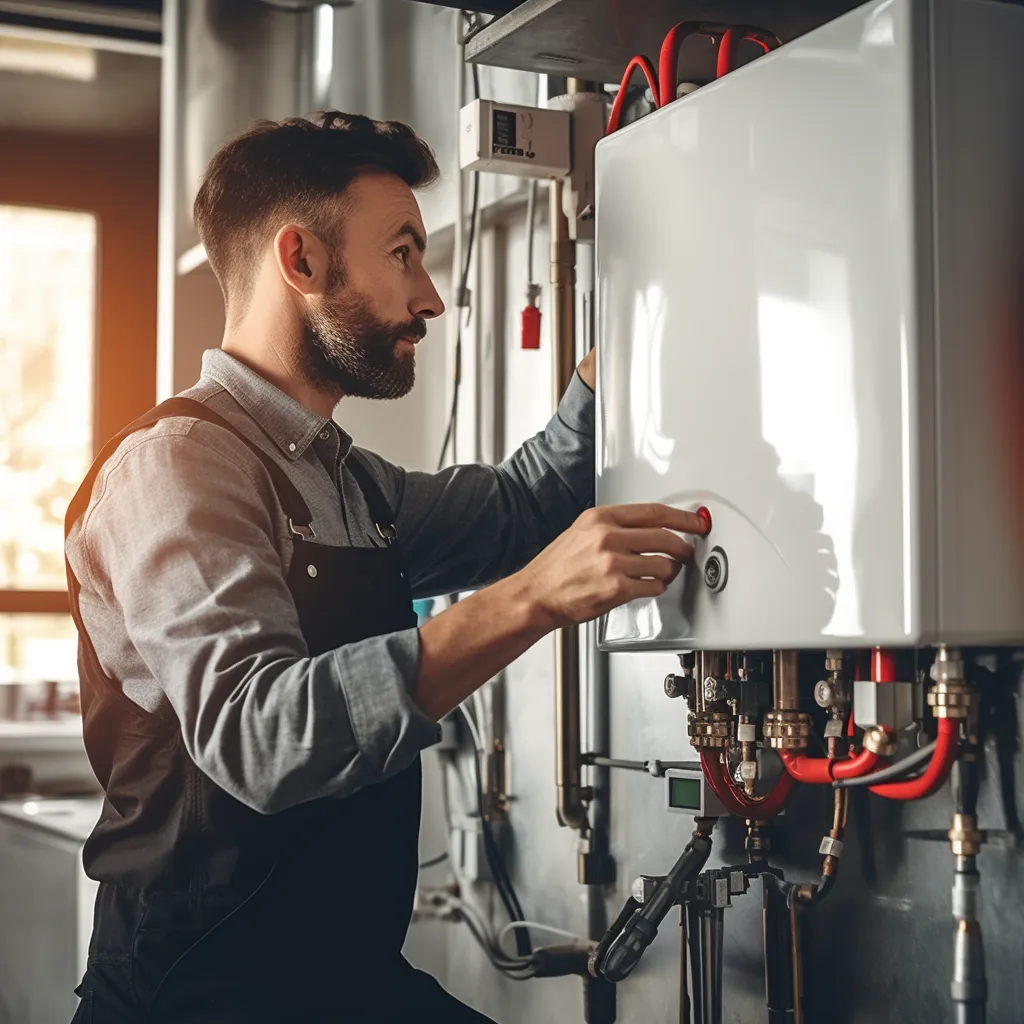
One influential factor is the type of water heater you choose. Different water heater types, such as tankless or traditional tank models, come with varying costs. The size and energy efficiency ratings of these units contribute to the price discrepancy.
Another factor to consider is the size of the water heater. Generally, larger water heaters have a higher price tag due to their increased capacity to hold more water.
Additional features or extras can also impact the overall cost of replacement. Features like automatic shutoff valves or pressure relief valves may come at an additional expense.
Installation costs are another variable to factor in. The complexity of the project, the need for additional materials, and the requirement for new pipes or venting systems can all influence the installation cost.
Labor costs play a significant role in the overall expense. Professional plumbers may charge either an hourly rate or a flat fee for their services, and this can have an impact on the total cost.

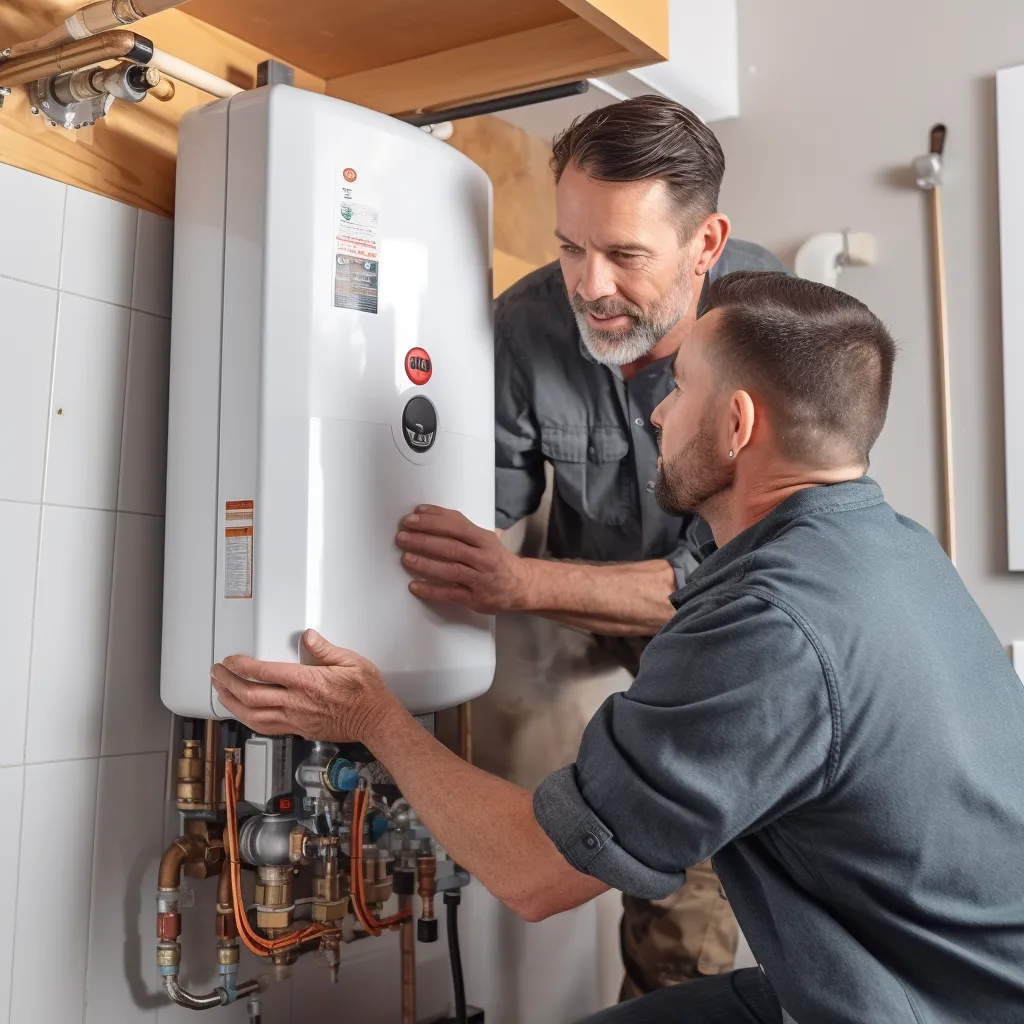
Replacing with energy-efficiency in mind
Investing in an energy-efficient water heater offers numerous advantages.
One of the major benefits is the significant reduction in utility bills. These models are designed to consume less energy, resulting in lower monthly expenses and long-term cost savings.
In addition to financial savings, energy-efficient water heaters also enhance comfort. They provide a consistent and comfortable flow of hot water, ensuring a reliable supply and optimal temperature that meets your specific needs. With an energy-efficient model, you can enjoy a satisfying hot water experience without any fluctuations.
Durability is another notable advantage of energy-efficient water heaters. These models are constructed using high-quality materials and advanced technology, which enhances their longevity and reliability for prolonged use. By investing in an energy-efficient water heater, you can have peace of mind knowing that it will serve you well for many years to come.
Choosing an energy-efficient water heater is an eco-conscious decision. By reducing energy consumption, these water heaters contribute to a greener and more sustainable environment. They play a part in minimizing greenhouse gas emissions, helping to combat climate change and promote a healthier planet for future generations.
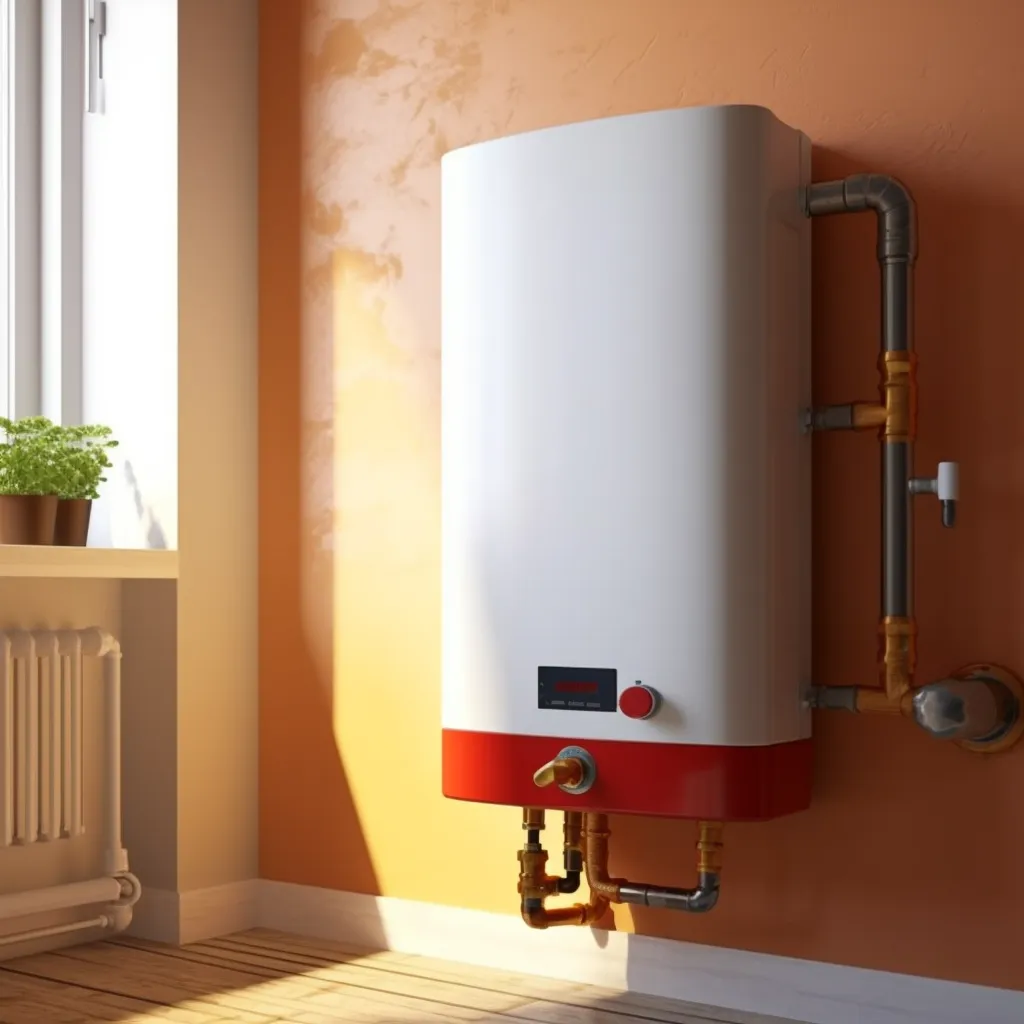
How to calculate the size
of the water heater you need for your home
When determining the ideal size for your hot water heater, it is essential to seek guidance from a professional to receive personalized recommendations that suit your specific requirements. Several factors influence the size of the water heater you need:
The number of individuals residing in your household plays a crucial role in determining the amount of hot water necessary. Generally, larger households will require a water heater with a larger capacity to meet the increased demand.
Take into account your hot water usage patterns. If you have multiple bathrooms or frequently utilize hot water for activities such as laundry and dishwashing, a larger tank may be necessary to ensure an ample supply.
For those living in colder climates, it is advisable to consider a larger tank to compensate for the lower incoming water temperature. This ensures that you have enough hot water available to meet your needs despite the colder conditions.
It is vital to consider the physical space available for the installation of the water heater. Ensure that the selected size can fit comfortably in the designated area, allowing for proper installation and functionality.

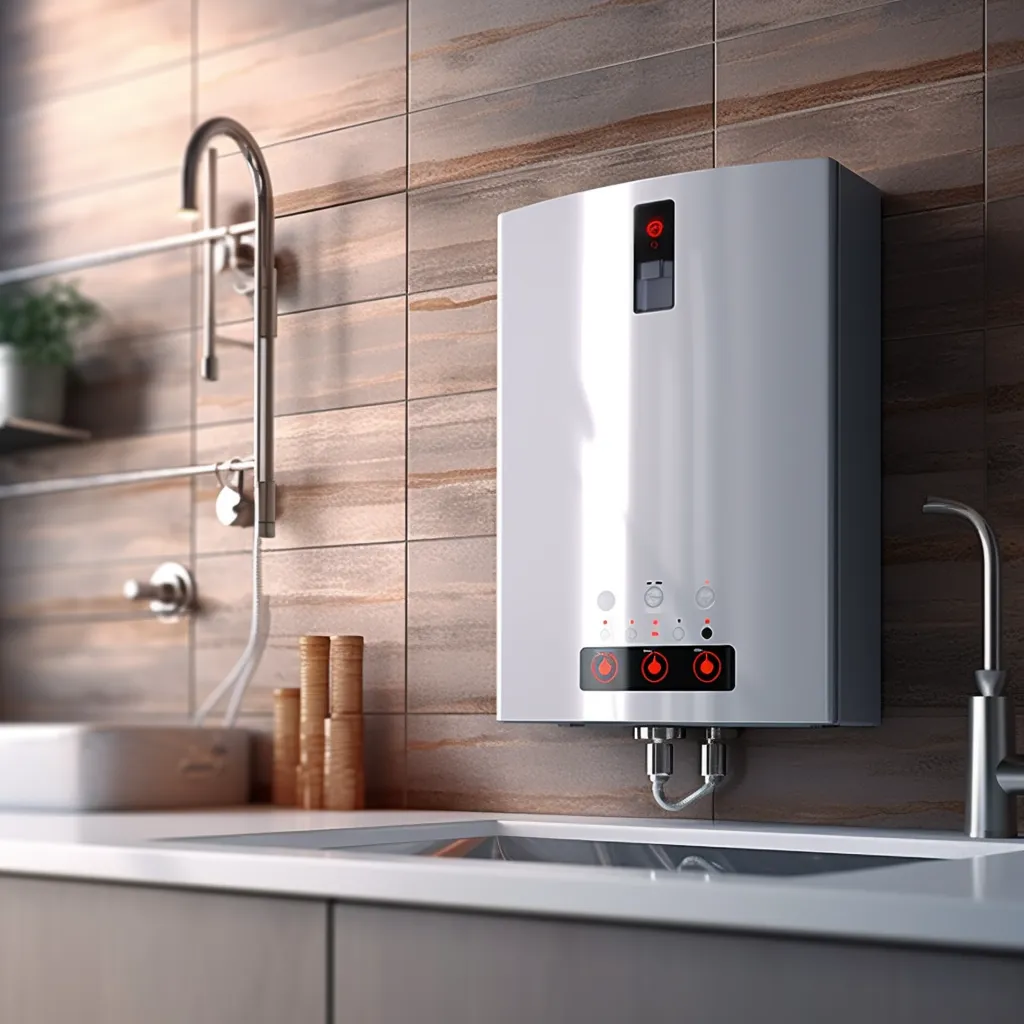
Research the different types of water heaters
There are several water heater options to consider when it comes to choosing a water heater for your home. One such option is the traditional tank water heater, which stores a substantial amount of hot water in a tank and maintains its temperature until it's required. On the other hand, tankless water heaters provide hot water instantly by heating it on-demand, eliminating the need for a storage tank. Hybrid water heaters combine features from both tank and tankless systems, ensuring energy efficiency and a continuous supply of hot water. Another eco-friendly alternative is solar water heaters, which utilize the sun's energy to heat water, reducing dependence on conventional energy sources. Additionally, heat pump water heaters are an energy-efficient and cost-effective choice as they extract heat from the surrounding air or ground to warm the water. By carefully considering your household's specific requirements, energy efficiency objectives, and budget constraints, you can determine the ideal water heater type for your home.
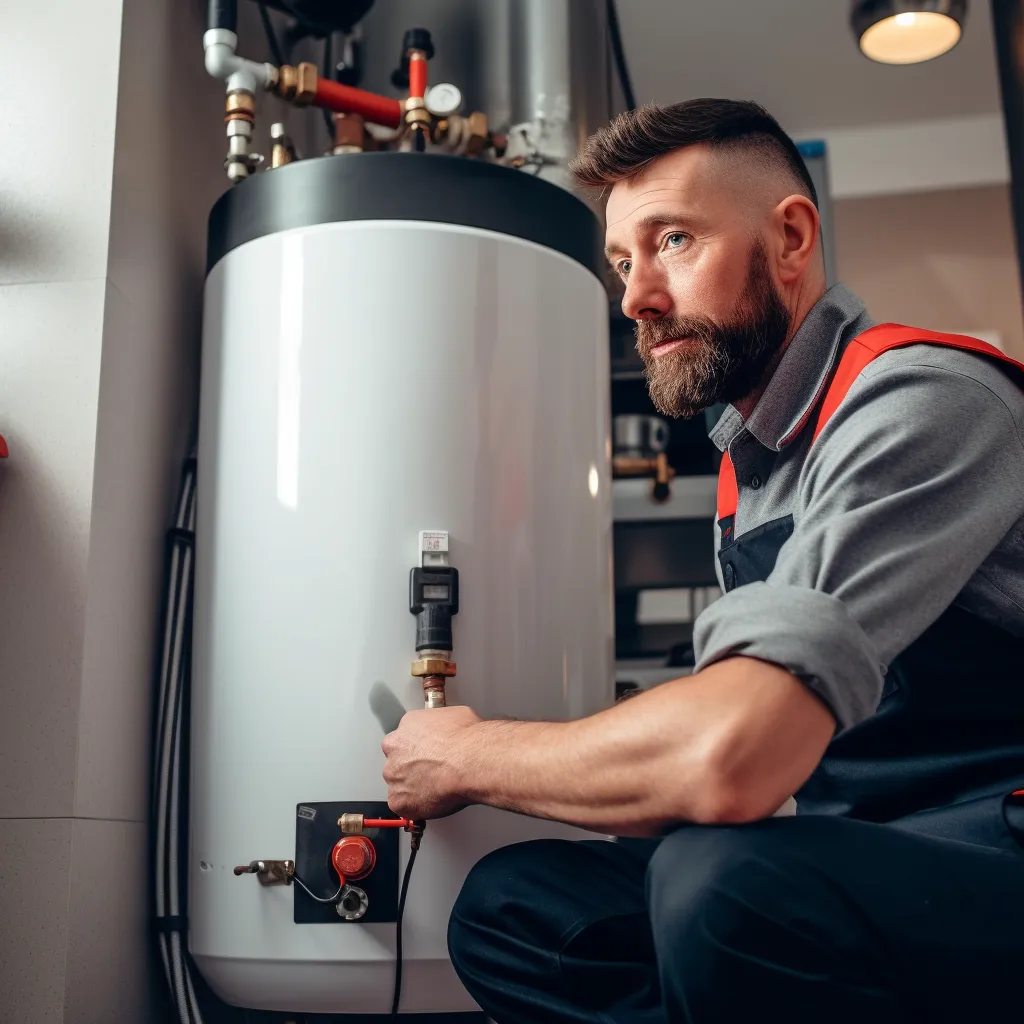
Cost of each type of water heater
Replacing water heaters can be a costly endeavor, with the expense varying depending on the type of unit you choose.
Traditional tank heaters are a budget-friendly option initially, but they tend to result in higher energy bills and have a shorter lifespan.
On the other hand, tankless heaters offer a longer lifespan and lower energy costs, albeit with higher upfront expenses.
Heat pump heaters fall in the moderate price range and can yield significant long-term savings.
If environmental friendliness is a priority, solar heaters are worth considering, despite their higher upfront costs. They can lead to substantial savings over time.
For those seeking innovation, smart heaters come equipped with remote control capabilities and energy-saving features.
While condensing heaters boast high efficiency, they do come with a heftier price tag.
When deciding between gas and electric models, keep in mind that gas heaters have lower initial costs, while electric heaters tend to be more energy-efficient.
Direct vent water heaters are the most cost-effective option available, whereas power vent models come at a slightly higher price.
Cost of installation and ongoing maintenance

When choosing a water heater, it's crucial to factor in the expenses related to installation and upkeep. Here are some essential points to keep in mind:
For tank water heaters, the initial installation costs are typically lower. However, it's worth noting that their long-term maintenance costs can be higher.
In the case of tankless water heaters, the installation costs may be higher initially. Nevertheless, they are generally more affordable to maintain, resulting in long-term savings.
Heat pump water heaters fall in the middle range when it comes to installation costs, comparable to tankless heaters. However, they might require slightly higher maintenance expenses.
Solar water heaters tend to have higher installation costs due to their connection to the plumbing system of the house.
Another crucial consideration is the fuel costs associated with each type of water heater. Gas heaters are often more cost-effective than electric models due to lower energy costs. However, it's important to bear in mind that fuel availability may vary depending on your location.
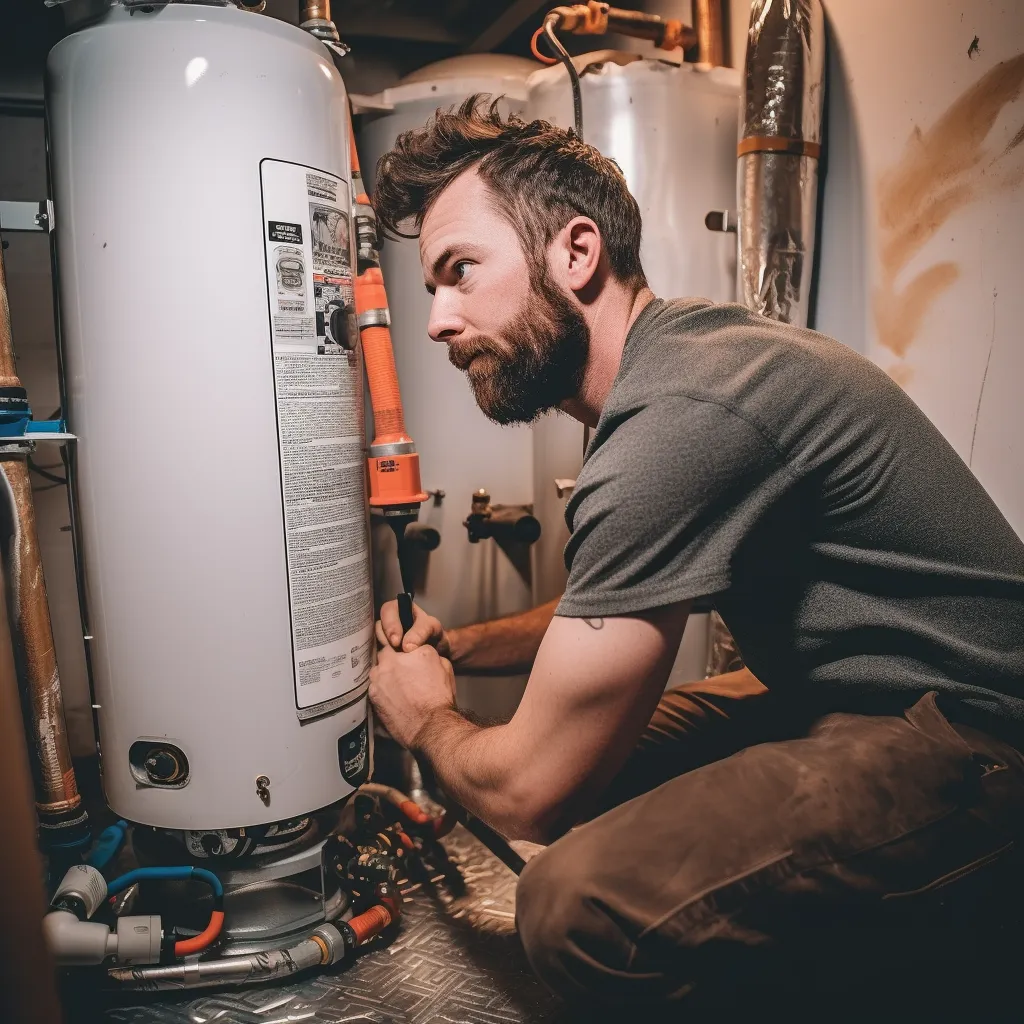
How to get an accurate estimate
for the cost of a water heater
Obtaining an accurate estimate for the complete cost of replacing your water heater, including installation, can be challenging without conducting thorough research.
When determining the suitable size and type of water heater for your requirements, take into account factors such as your household size and hot water usage patterns.
To gauge the installation and upgrade expenses for your water heater system, it's advisable to request quotes from local plumbing companies.
Consider the cost of the water heater itself, including any necessary warranties or additional features.
Tips to save money on installing a new water heater
When purchasing a new water heater, there are several money-saving tips you should consider:
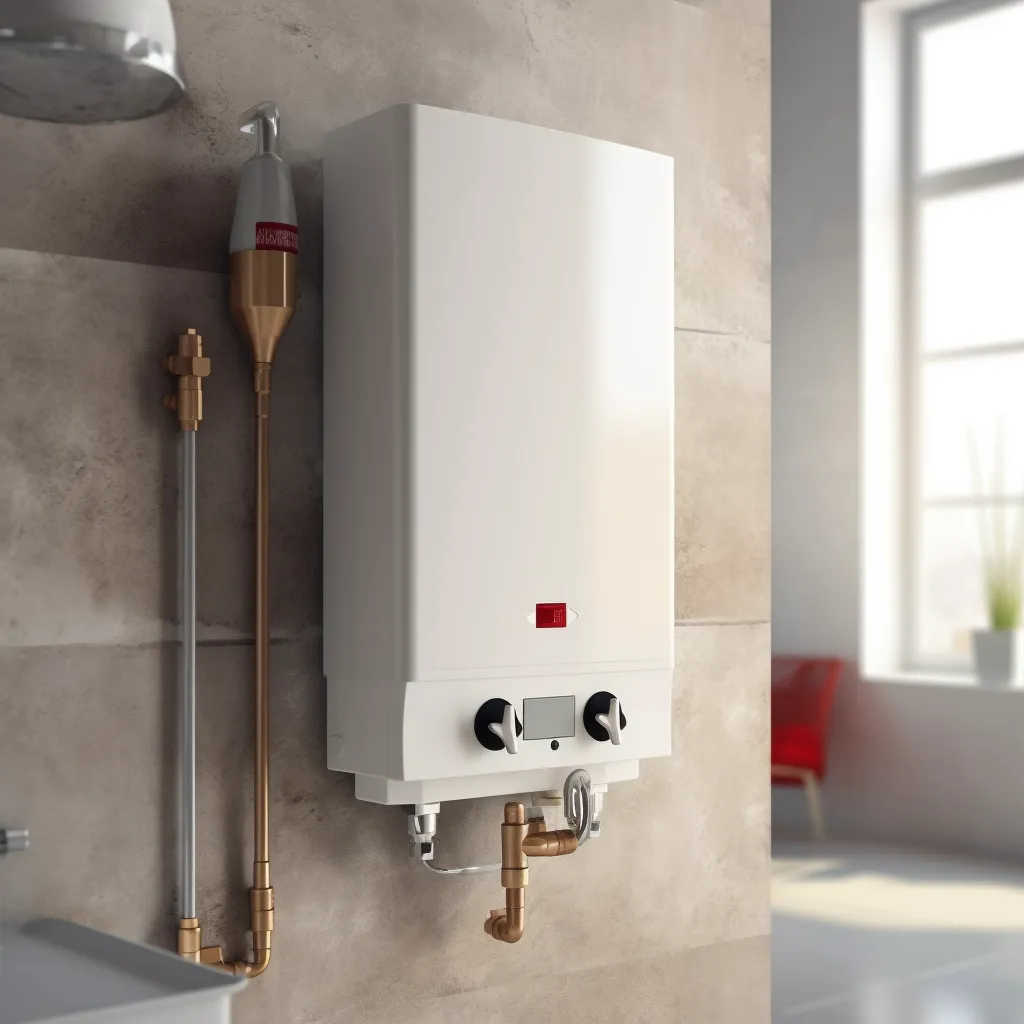
Compare prices: Take the time to compare prices from different retailers and plumbing companies. By doing so, you can find the best deal available and potentially save a significant amount of money.
Check for rebates and tax credits: Contact your local utility company to inquire about any rebates or tax credits available for purchasing an energy-efficient water heater. Taking advantage of these incentives can help reduce the overall cost of your purchase.
Opt for energy efficiency: Investing in an energy-efficient water heater can lead to long-term savings on your monthly utility bills. Look for models that are designed to conserve energy and reduce consumption without compromising performance.
Consider the total cost of ownership: While the upfront cost of a water heater is important, it's crucial to consider the total cost of ownership. This includes maintenance, repairs, and energy consumption over the lifespan of the unit. By weighing these factors, you can make a more informed decision that saves you money in the long run.
Look for bundle deals and promotions: Keep an eye out for bundle deals or promotions offered by manufacturers or retailers. These offers may include additional components or services at a discounted price, providing you with extra value for your money.
Be cautious with used water heaters: If you're considering a used water heater, exercise caution and thoroughly inspect it before making a purchase. Check for any signs of damage or wear, and ensure that the unit is in proper working condition. Buying a reliable used water heater can be cost-effective, but it's important to make an informed choice.
Hire a professional for installation: Water heater installation requires specialized tools and knowledge. To ensure the job is done correctly and to avoid potential issues, it's recommended to hire a professional plumber or technician. While it may involve an additional cost upfront, it can save you from costly mistakes or future repairs.
What to do if you need services
to replace your water heater
If your water heater is failing and you're considering a replacement, hiring a licensed water heater professional is the best approach. Here are some tips to help you choose the right expert for the job:
Discuss the various options available for water heater replacements, such as tankless water heaters or traditional tank-based models, and determine which one best suits your needs.
Request a detailed written estimate that includes all costs associated with the replacement, including equipment, labor, and any additional materials.
Consider reading customer reviews or seeking recommendations from friends, family, or online communities to gauge the reputation and reliability of the water heater professional.
Ensure that the professional follows local building codes and regulations to guarantee a safe and compliant installation.
Prioritize energy efficiency by discussing energy-saving features and choosing a water heater that meets your efficiency requirements.
Don't hesitate to ask any questions or express concerns you may have during the consultation process. Clear communication is essential for a successful water heater replacement.
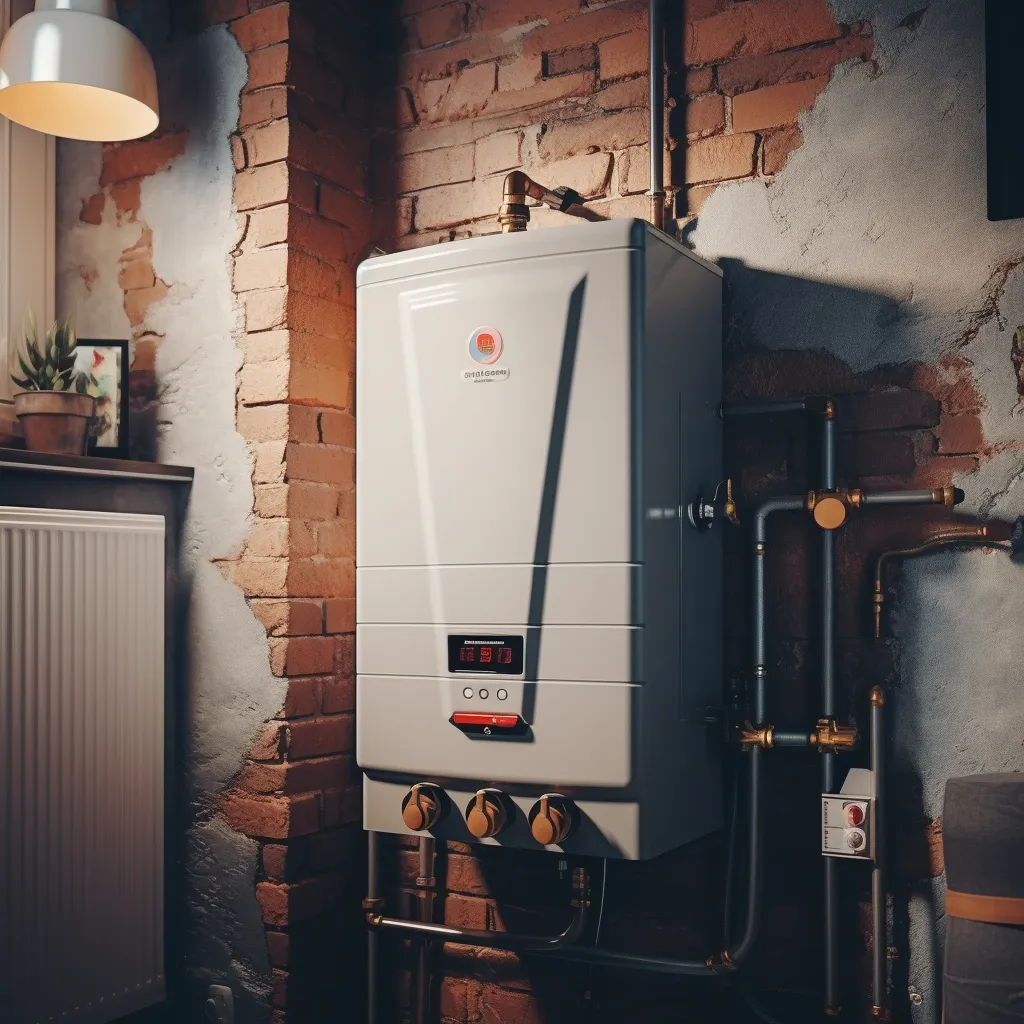
What does a reliable water heater expert do?
Our expert team is here to help you determine whether your water heater requires repair or replacement. With our thorough evaluation, you can trust that we will accurately diagnose any issues and provide you with an honest recommendation.
Once we assess your water heater, we will prepare a detailed estimate for you. This estimate will cover all aspects of the job, including labor, materials, and applicable taxes. We believe in transparency, and our goal is to ensure that you have a clear understanding of the costs involved.
Choosing the right water heater for your specific needs can be a daunting task. But worry not, as our team will guide you through the process. We take into account factors such as size, efficiency, and price to help you make an informed decision. Rest assured that we will assist you in selecting the best water heater that meets both your requirements and budget.
When it comes to installation, our experienced technicians have got you covered. They will handle every step of the process with utmost professionalism. From removing your old water heater to seamlessly setting up the new one, we strive to make the transition as smooth as possible. Your satisfaction is our priority, and we aim to provide you with a hassle-free experience.
At our company, we take pride in the quality of our workmanship and the parts we use. We understand the importance of reliability and longevity when it comes to your water heater. That's why we offer warranty coverage for added peace of mind. You can trust that our services and the products we provide are backed by our commitment to excellence.
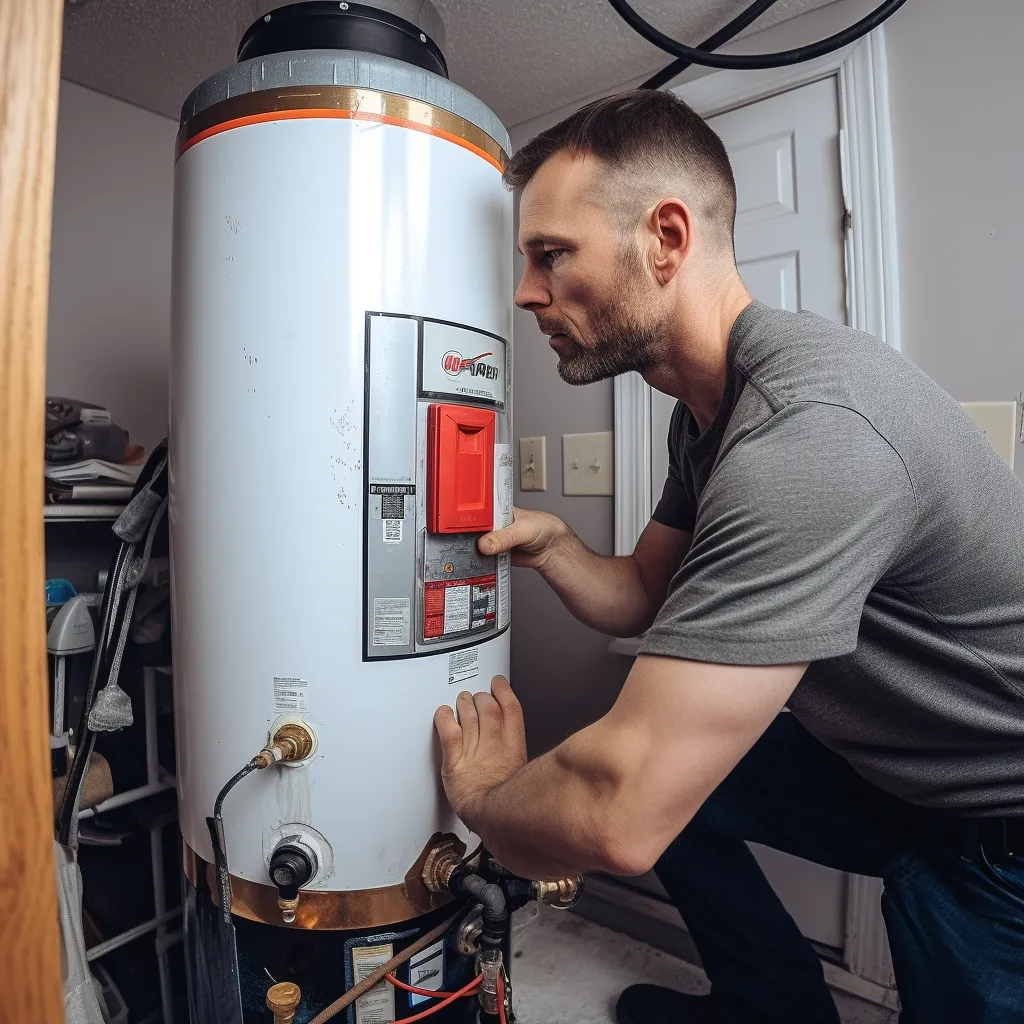
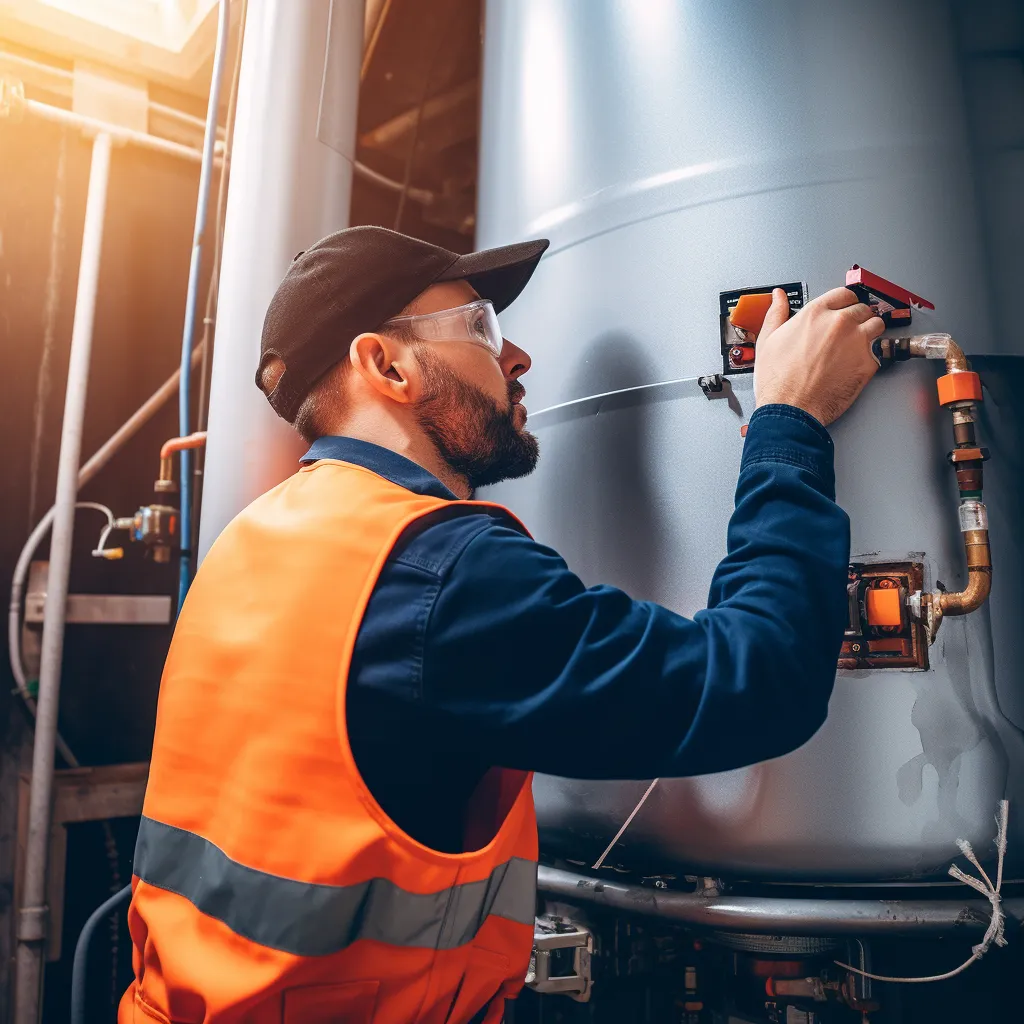
Water heaters don't last forever
Understanding the appropriate time to upgrade or keep your water heater in optimal condition is crucial for homeowners. Generally, a water heater has a lifespan of about 6 to 12 years, which can vary depending on how frequently it is used and its efficiency. When contemplating a replacement, there are various factors that influence the overall cost, such as the type and size of the water heater, expenses related to installation and maintenance, as well as potential cost savings through rebates, incentives, or extended warranties. To make a well-informed decision, it is advisable to conduct thorough research and compare different models of water heaters. Seeking guidance from a licensed professional can also be highly beneficial, as it can provide valuable insights and potentially lead to long-term savings of both time and money.
Contact Us
GET IN FULL TOUCH
PHONE: (801) 877-1421
EMAIL:
nathan@waterheaterlehi.com
Solutions Home Services
74 W 1625 S, Lehi, UT 84043
